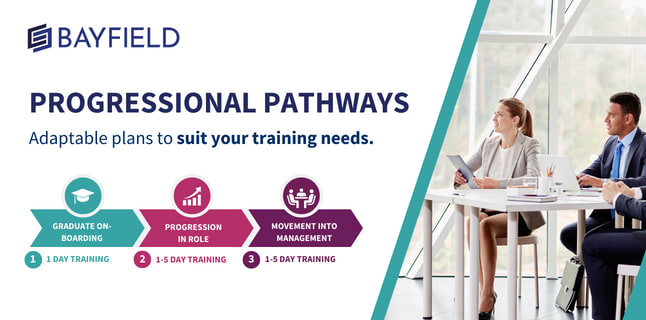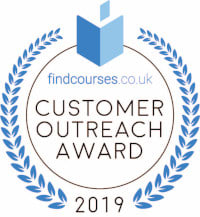Course description

This online programme is designed to provide participants with a holistic understanding of the global challenges associated with Environmental, Social and Governance (ESG) factors in hospitality, and explore the variety of approaches for integrating ESG principles into organisations.
To deliver the course we are using digital resources blended with live webinars. This dynamic approach allows you to interact with the industry professionals and benefit from their insights throughout the programme.
Upon completion of modules one through seven, you will be able to apply the knowledge acquired through a case study. On Module eight, you will construct a strategic action plan and gain insights into the critical pathways required to generate a positive impact from the core business model to daily operations.
On this course you will:
- Understand the importance of integrating social and environmental considerations and sound governance into business and decision-making.
- You will be able to identify and analyse the social and environmental impacts of hospitality operations.
- Develop and implement sustainable business practices and strategies,
- Assess the risks and opportunities related to sustainability and ESG related issues.
Suitability - Who should attend?
- ESG Managers
- Sustainability Director
- CFOs
- Compliance Manager
- Investment Manager
- Portfolio Manager
- Chief Sustainability Officer (CSO)
Training Course Content
Module 1 | ESG and Sustainability Context – are we on the right path to reverse social and environmental challenges?
Understanding the concept of ESG and its application in the hotel sector.
- This module will cover sustainability and Environmental Social and Governance (ESG) concepts and their importance in the hotel industry.
- Over the last 25 years, there has been an increase in companies measuring and reporting ESG data on environmental, social and governance aspects such as carbon emissions, water consumption, employee relations, assets impact, board diversity, and anti-corruption.
- ESG disclosures are linked with decreased capital constraints, cost of capital, forecast errors, and stock price movements upon regulations.
- Modern companies, executive teams, and investors view ESG and sustainability as strategic considerations.
Module 2 | Risks and Opportunities Analysis – Assets and the global polycrisis; are we running toward ecological and societal collapse and extinction?
Assessing a company’s sustainability and societal impact.
- Rigorous sustainability, environmental and social assessments in the context of organisational climate action.
- Research shows that ESG factors affect companies’ valuation and performance, both through their systematic and idiosyncratic risk profile.
- Sustainability-related due diligence becomes a crucial competence.
- It is critical to include an ongoing risk-management process to identify, prevent, mitigate, and account for business practices.
- Many investors and other stakeholders are actively expressing the need for deeper transparency on the ESG strategies of hospitality companies.
Module 3| Regulation & Non-financial Reporting and Standards
Interoperability and materiality challenges specific to the hospitality industry.
- Explore the dynamic relationship between regulatory frameworks and the domain of non-financial reporting, a cornerstone of ESG practices.
- Navigate the intricate challenges of interoperability and materiality, unravelling the complex considerations that arise when aligning diverse standards.
- Engage with the crucial subject of sustainability reporting, delving into its significance and implications.
- Learn about the different ESG frameworks and standards.
Module 4 | ESG Metrics, KPIs and Technology- Are the measurements meaningful?
ESG Metrics and KPIs to implement in a new building, existing asset, and retrofits.
- Explore the challenges of collecting, reporting, and managing sustainability-related data.
- Methodologies, challenges and opportunities in assessing meaningfulness of these measurements.
- Learn about complexities of ESG measurement providing you with the insights and tools to navigate this crucial aspect of modern business and sustainability.
- ESG data and how you can best integrate it into your financial analyses.
- Corporate activism, how CEOs can take on the role of activist, and influence ESG policies by partnering with NGOs.
Module 5 | Integrating ESG into Corporate Strategy
How they intersect with corporate goals, risk management, stakeholder engagement, and long-term value creation.
- ESG considerations into decision- making processes, aligning them with broader business objectives.
- How real estate companies integrate ESG into the investment process.
- Define, measure, and implement asset-level ESG strategies and its impact.
- ESG Integration at investor/ portfolio level.
Module 6 |Green Finance in Real Estate Hospitality
Understanding the Green finance tools to support the transition and tackle global environmental and social challenges.
- Understanding green finance instruments as an innovative financial resource aimed at the environmental protection and the accomplishment of sustainable utilization of resources.
- Case studies of different initiatives.
- Learn about the challenges and opportunities of green finance.
Module 7| ESG Professionals and Competencies
The demand for sustainability knowledge and skills continues to grow rapidly as ESG considerations are increasingly being integrated into the strategic and investment decision making processes of companies, financial institutions, and advisors.
- Professionals require a multifaceted skill set to address sustainability challenges effectively.
- It is required to have a grasp of environmental issues, social dynamics, and governance principles.
- Learn the essential skills and competencies for collaborating with stakeholders, measuring performance, and navigating evolving challenges, regulations, and standards.
Module 8 | Conclusion, Pathways and Action Plan
Upon completion of modules one to seven, you will be able to apply the knowledge acquired into practice through a case study. Over this week you will prepare an action plan and understand the pathways needed to generate a positive impact from the core business model to daily operations.
- Webinar 1: discussion about the presented case study and showcase of pathways created by the students.
- Webinar 2: recap and Q&A.
Why choose Bayfield Training
Over 25 years in business
Original Content, Unique Delivery
+90% courses review rating from past delegates
Customer Outreach Award 2019

We believe that it should be easy for you to find and compare training courses.
Our Customer Outreach Award is presented to trusted providers who are excellent at responding to enquiries, making your search quicker, more efficient and easier, too.
Expenses
Online Self Study: £3000 + VAT
Number of Hours: 8-10 hours per week, 80-100 hours total
Course type: Strategy
Pre-requisite: None
CPD Hours: None
Request info

Bayfield Training - Real Estate Executive Education
Bayfield Training is a prominent global supplier of investment grade Real Estate executive education. Having begun 25 years ago as pioneers in the field of Real Estate Financial Modelling, today Bayfield has a huge extended network of experts, specialists and...
